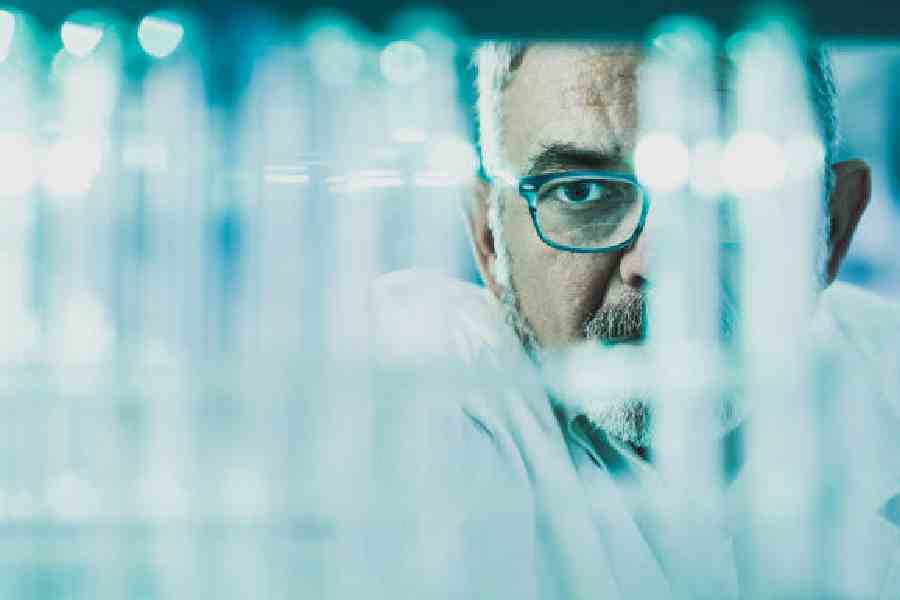In an unmarked laboratory stationed between the campuses of Harvard and the Massachusetts Institute of Technology, both in the US, a splinter group of
scientists is hunting for the next billion-dollar drug.
The group, Arena BioWorks, bankrolled with $500 million from some of the wealthiest families in American business, has created a stir in the world of academia by dangling seven-figure paydays to lure highly credentialed university professors to a for-profit bounty hunt. Its self-described goal: to avoid the blockages and paperwork that slow down the traditional paths of scientific research at universities and pharmaceutical companies, and discover scores of new drugs (at first, for cancer and brain disease) that can be produced and sold quickly.
“I’m not apologetic about being a capitalist, and that motivation from a team is not a bad thing,” said technology magnate Michael Dell, one of the group’s big-money backers. Others include an heir to the Subway sandwich fortune and an owner of the Boston Celtics.
The wrinkle is that for decades, many drug discoveries have not just originated at colleges and universities, but also produced profits that helped fill their endowment coffers. The University of Pennsylvania, for one, has said it earned hundreds of millions of dollars for research into mRNA vaccines used against Covid-19.
Under this model, any such windfall would remain private.
Arena has been operating in stealth mode since early fall, before the turmoil over Israel and Hamas erupted at the colleges it borders. Yet the impulse behind it, say researchers who have jumped to the new lab, is becoming only more acute as the reputations of institutions of higher learning take a hit. They say they are frustrated with the slow pace and administrative bogdowns at their former employers, as well as what one new hire, J. Keith Joung, said was “atrocious” pay at Massachusetts General Hospital, where he worked before Arena.
“It used to be that it was considered a failure to go from academia to industry,” said Joung, a pathologist who helped design the gene-editing tool CRISPR. “Now the model has flipped.”
The motivation behind Arena has scientific, financial and even emotional components. Its earliest backers first mused about the idea at a late-2021 confab at a mansion
in Austin, Texas, US, where Dell, along with early Facebook investor James W. Breyer and an owner of the Celtics, Stephen Pagliuca, vented to one another about the seemingly endless requests for money from collegiate fundraisers.
Pagliuca had donated hundreds of millions of dollars to his alma maters, Duke University and Harvard, largely earmarked for science. That earned him seats on four advisory boards at the institutions, but it began to dawn on him that he didn’t have any concrete idea what all that money had produced, save for his name on a few plaques outside various university buildings.
Over the subsequent months, those early backers teamed up with a Boston venture capitalist and trained medical doctor, Thomas Cahill, to devise a plan. Cahill said he would help find frustrated academics willing to give up their hard-fought university tenure, as well as scientists from companies like Pfizer, in exchange for a hefty cut of the profits from any drugs they discovered. Arena’s billionaire backers will keep 30 per cent with the remainder flowing to scientists and for overhead.
Stuart Schreiber, a longtime Harvard-affiliated researcher who quit to be Arena’s lead scientist, said his more out-there ideas rarely received backing. “It got to the point where I realised the only way to get funding was to apply to study something that had already been done,” Schreiber said.
Schreiber’s cachet — he is a pioneering chemical biologist in areas like DNA testing — helped attract nearly 100 researchers to Arena. Harvard declined to comment on his departure and that of others he helped lure.
An air of calculated secrecy has swirled around Arena’s operations. Joung, who resigned from Mass General last year, said that he did not tell former colleagues where he was going and that several had asked if he was terminally ill.
Cahill said several scientists he hired had their university email access swiftly disabled and received stiff legal threats of retribution if they tried to recruit former colleagues — a common phenomenon in the business world that counts as brass knuckles in academia.
The five billionaires backing Arena include Michael Chambers, a manufacturing titan and the wealthiest man in North Dakota, and Elisabeth DeLuca, the widow of a founder of the Subway chain. They have each put in $100 million and expect to double or triple their investment in later rounds.
Schreiber said it would require years — and billions of dollars in additional funding — before the team would learn whether its model led to the production of any worthy drugs.
“Is it going to be better or worse?” Schreiber said. “I don’t know, but it’s worth a shot.”
NYTNS











